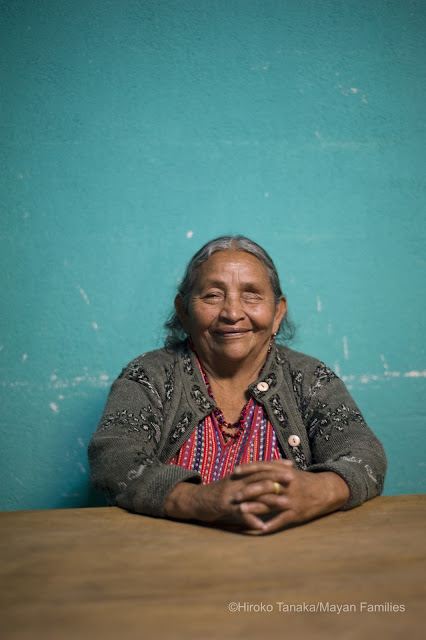Our Elderly
Care program feeds about 70 people per day at our locations here in Panajachel
and the neighboring village of San Jorge.
For most of
them, this is the only meal they receive all day. Some stretch their portion by
saving half for the evening. For some, they are the only members of their
family who get to eat that day. Others save half their meal for their wife,
husband or families at home.
When I ask
what they’d eaten that day, or what they might eat later, many answer: a single
tortilla with salt. A single egg. A
tomato. Nothing.
Some of our
elderly live with their entire families in a single house. Some have nine
children who have four or five children of their own. Food prices continue to
soar, leaving those who cannot work in worse conditions than ever: the adults
in the house must choose who gets to eat, their children or their parents. They
must choose who gets to sleep in a bed, and who must sleep on the floor.
This should
not have to be a choice. The Feeding Program provides a single meal a day to the elderly who otherwise would
forfeit their food for the children, or who by their poor health would not
otherwise be able to scavenge the trash for scraps or find other means to feed themselves.
Having
spent their lives in desperate conditions during the last century of war,
poverty, civil unrest and its constant repercussions, the elderly are still the
last to receive relief in Guatemala. And having spent their lives struggling
with the hope that someday things might get better, and being proven
otherwise, they are grateful for even the smallest gift: one meal per day, five
days a week.
By no means
is one meal enough, but at the moment it is all Mayan Families can provide, and
the program is in danger of being cut. Only
those who are currently sponsored will continue receiving their one meal a day.
The rest we will have to refuse; we will have to tell them that even this tiny,
but necessary quantity of food will be taken from them, like so much has been
taken from them throughout their lives.
Currently, only 13 of our elderly receive a monthly donation to help with food, medical costs, rent or other necessities. In an effort to ensure that all 70 of our elderly receive just one meal a day, not including purchased medicine, rent costs or other expenses, we are asking you to sponsor one for just $35 a month. We will continue to help our elderly for medicine and other needs per the extraneous donations we receive. However, $35 a month will provide one meal per day, five days a week, to one person who has no way to care for herself, whose family faces the daily impasse of feeding who they must raise or feeding who fought to raise them.
If you would like to help to keep one person fed for one month, please visit www.mayanfamilies.org/donatenow and write "one month, one person'' in the Other box.
























